As continuously updated by the Electronic Newspaper of Natural Resources and Environment, continuing the Working Program of the 5th Session, on June 21, the 15th National Assembly discussed in the Hall the Draft Law on Land Amendment.
At the discussion, the Delegates basically agreed with the Submission, the report on the review of the draft law and the report on the acceptance of opinions at the Group of the drafting agency and contributed comments to the regulations to perfect the Draft Law in the spirit of closely following the Party's policies, making land a resource for the country's socio-economic development.
Overcoming the problem of suspended planning
Speaking at the discussion, delegate To Van Tam (National Assembly delegate of Kon Tum province) reflected on the situation of planning being established and approved but implementation being slow or not being able to implement some planning contents. The delegate said that "suspended" planning not only causes waste of land resources, affects socio-economic development but also causes difficulties and disrupts people's lives.
From there, the Kon Tum delegation proposed to remove the "vision" in the planning and land use plan according to the draft, which is 10 years for district-level land use planning. "The vision is only an estimate, a forecast, and the forecast may or may not be accurate. That can also be a factor in "suspended" planning. People only want the State to specifically determine how long the specific land planning is, or what their rights are in the planning area," the delegate analyzed.
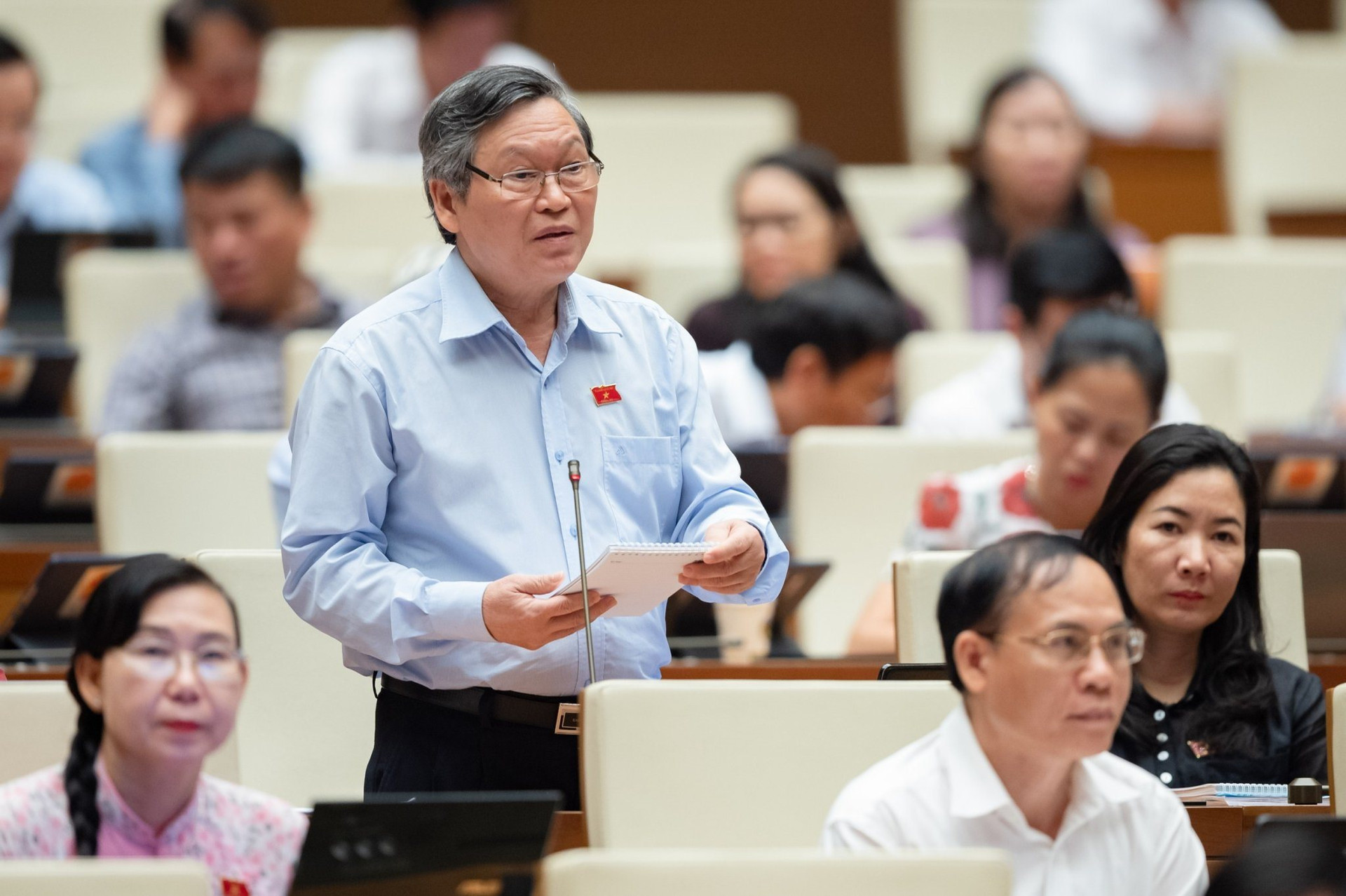
The delegate also proposed to add a provision to the article on the organization of implementation of land use planning and plans: if the approved land use planning period ends without implementing the planning or project, the planning will be canceled.
Regarding this content, Delegate Huynh Thanh Phuong (National Assembly Delegate of Tay Ninh Province) said that according to the provisions of Clauses 3 and 4, Article 76, in case the land has been planned but there is no plan for use, the rights of land users will not be restricted; in case the land has been planned and there is a plan for use, land users in the area must change the land use purpose and the land will be recovered and certain rights will be restricted, such as not being allowed to build new houses, works, perennial crops, if there is a need to renovate or repair existing houses and works, they must be permitted by the competent state agency.
However, according to the Delegate, the current reality is that many planning projects are slow to implement, which has greatly affected the legitimate rights of land users. "The provisions in the draft Law state that if there is a plan but no land use plan, the rights of land users will not be restricted. But in reality, if land and houses are subject to planning, even if they are allowed to be transferred, their prices will be limited, transactions will be difficult, construction and repairs will not be allowed, causing damage to people, wasting land resources, and people will be upset," said the Delegate.
On the other hand, the draft law also stipulates that after 3 consecutive years as determined in the annual land use plan without a decision to reclaim land or permission to change land use purpose, the competent state agency approving the land use plan must review and evaluate to continue implementation in the next year's land use plan or cancel it.
Delegates proposed to clarify more about the rights of land users in cases where land has been planned and there is a land use plan and to clarify the responsibilities of agencies, organizations and individuals in planning and land use plans but slow implementation causes damage to land users and wastes land resources.
Restricting the State's land acquisition for socio-economic development, for the national and public interest.
Speaking at the meeting, delegate Mai Thi Phuong Hoa (National Assembly Delegation of Nam Dinh province) said that, regarding land recovery for socio-economic development, for national and public interests, compared to the draft law submitted to the National Assembly at the previous session, this draft law has changed when expanding the cases of land recovery into 3 groups: land recovery for construction of public works, land recovery for construction of state agency headquarters, public works, land recovery for socio-economic development, for national and public interests.
However, the Delegate believes that the provisions in Point e, Clause 3, Article 79 on land recovery for socio-economic development for national and public interests, referring to the Law on Bidding, are not clear. According to the Delegate, Land use rights auction or investor selection bidding is only a method of land allocation and land lease, not a criterion for determining land recovery cases. Furthermore, the State's land recovery for land use rights auction includes commercial housing projects, in which case it is very difficult to determine whether it falls under the case of land recovery for socio-economic development, for national and public interests or not.
Delegates suggested that the drafting agency consider specific cases and minimize the state's land acquisition for socio-economic development, for the national and public interest, especially when commercial factors dominate or intertwine.
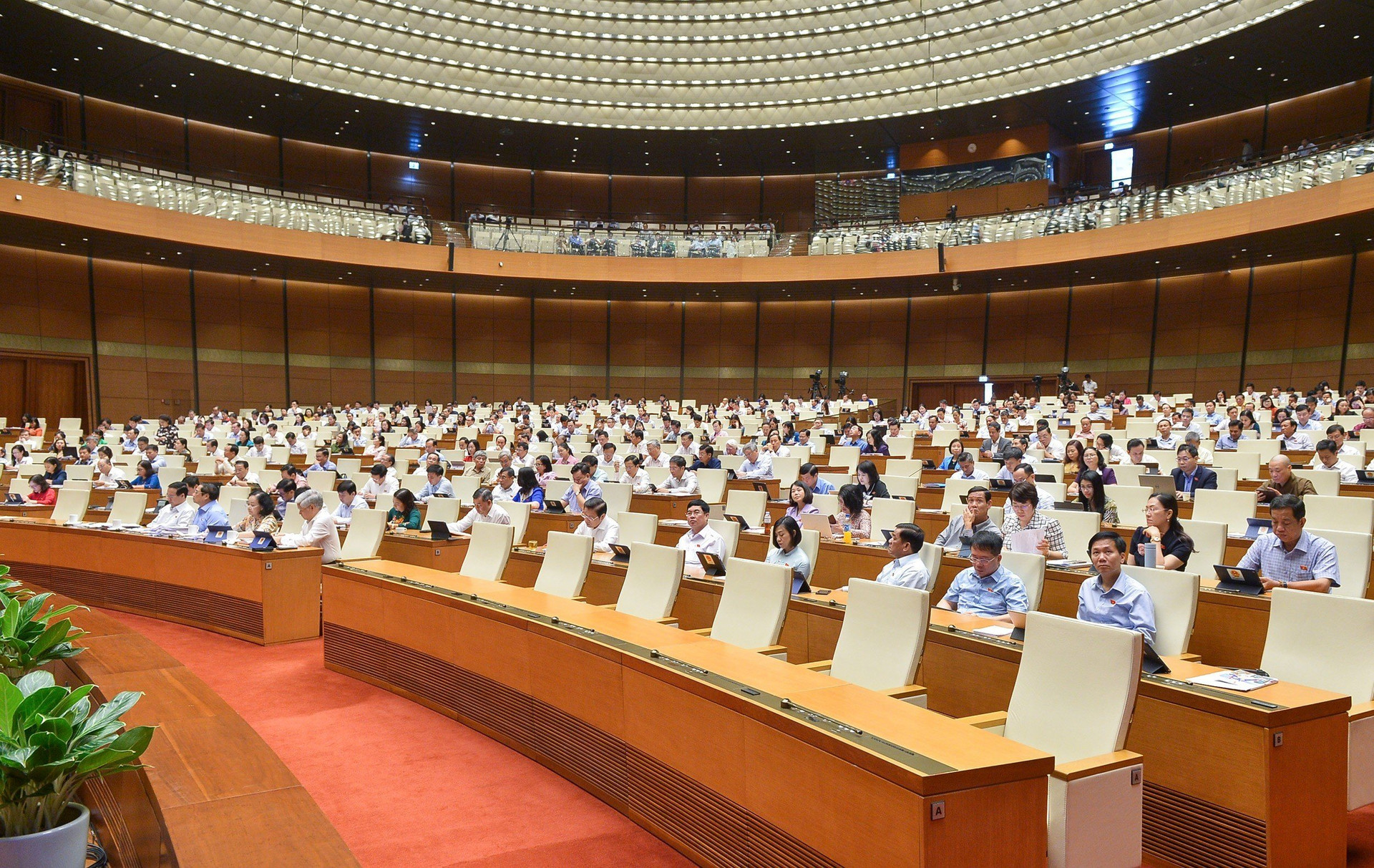
Regarding this issue, National Assembly Delegate Nguyen Huu Thong (National Assembly Delegation of Binh Thuan Province) proposed that Article 3 should add an explanation of the term "socio-economic development project for national and public interests".
According to the delegate, the current law does not have regulations or clear explanations for this concept; it has not yet established a specific criteria system to determine what constitutes a socio-economic development project for the national and public interest. “This has caused confusion and difficulties for enforcement agencies in applying the law on land recovery; and has created loopholes for illegal land recovery, ineffective land recovery, causing damage to the rights and legitimate interests of land users,” said National Assembly delegate Nguyen Huu Thong.
According to National Assembly Deputy Nguyen Huu Thong, socio-economic development projects for national and public interests must meet the following three specific criteria: They must bring common benefits to the people of a commune, a district, a province or a region; They must be invested in by the state budget or invested in the public-private partnership; and The purpose of the project is for public purposes.
Strict regulations on criteria for converting the purpose of using rice-growing land and forest land
However, Delegate Nguyen Thi Kim Anh - National Assembly Delegation of Bac Ninh province said that rice is a basic grain, a staple food crop, a key crop in Vietnam's agriculture. Rice-growing land is land with high structure and nutritional value, and takes hundreds of years to form. The goal by 2030 is that our country will continue to improve the efficiency of agricultural land use, maintain stable rice-growing land area to ensure national food security.
To achieve the goal of maintaining rice and forest land areas, delegates said that it is necessary to strictly manage the planning of rice and forest land areas, which are specifically determined for each locality, down to the commune level. With the need to develop the country, the need to convert the purpose of using rice and forest land to non-agricultural purposes is inevitable.
With the goal of ensuring food security and adapting to climate change, delegates proposed the need to regulate the investigation, assessment, statistics, counting, quantification, and full accounting of the efficiency of agricultural land use in the economy.
The delegate also proposed to stipulate in the law the criteria and conditions for converting the purpose of using rice-growing land and forest land to other purposes, which is an important basis for localities to implement uniformly nationwide. The delegate suggested adding some criteria such as: not being allowed to convert the purpose of agricultural land after it has been accumulated and concentrated to non-agricultural land, having a report assessing the impact and feasibility of the project, and attaching the responsibility of the project owner to the community.
Regulate information through investigation and actual survey to ensure land prices are close to the market.
Regarding the method of determining land prices, Delegate Huynh Thi Phuc - National Assembly Delegation of Ba Ria - Vung Tau province said that although the drafting agency has revised and accepted the direction of determining prices according to market principles, with the determination method ensuring objectivity, publicity, transparency and also ensuring independence between the consulting organization, the Land Price Appraisal Council and the agencies or persons with the authority to decide on land prices.
However, the Delegate proposed to clarify the content of input information to determine the land price stated in the transfer contract and in case there is no land price information in the national database, collect land price information through investigation and survey. Because, in reality, there are very few cases where the land transfer price is recorded correctly, leading to the investigation and survey showing that the land price is higher than the transfer contract.
Delegates proposed that it is necessary to supplement the legal basis to ensure that the land price through investigation and survey is higher or lower than the price on the transfer contract.
Regarding this issue, Delegate Tran Van Khai (Ha Nam Province National Assembly Delegation) said that the Draft Law stipulates 4 methods for determining land prices, however, the more methods of land valuation are stipulated, the more difficult it is to apply. Because if these 4 methods are applied to determine the price for the same plot of land, there will be 4 different prices. Therefore, the Delegate proposed that it is possible to develop a very simple method for calculating land prices when calculating the value of land use rights, avoiding the need to analyze and choose many methods.
Seriously absorb comments to complete the Draft Law
On behalf of the drafting agency, Minister of Natural Resources and Environment Dang Quoc Khanh expressed his deep gratitude to all the people of the country for their great interest in contributing comments to the Land Law (amended); at the same time, thanked the National Assembly Standing Committee for its direction and concluding comments; National Assembly deputies gave responsible comments, close to the practical situation as well as long-term orientation in amending the Land Law.
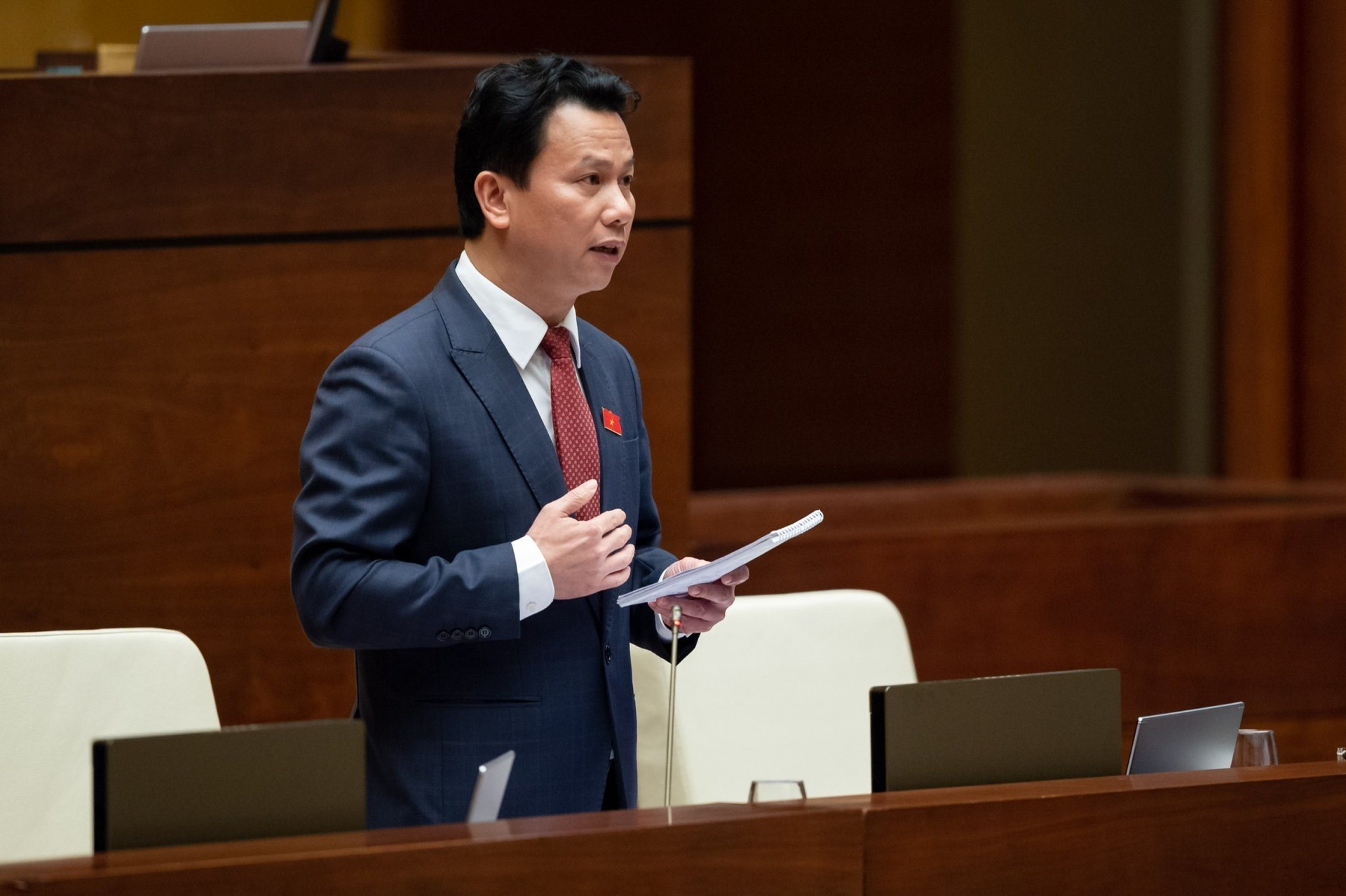
Minister of Natural Resources and Environment Dang Quoc Khanh stated that the drafting agency has tried to promote its ownership, mobilize intelligence and enthusiasm, and implement the will and aspirations of the people to complete the draft Law to ensure compliance with the Party's policies and guidelines, closely follow the orientation of Resolution No. 18-NQ/TW, and ensure the consistency, unity, and feasibility of the legal system, meeting the country's development requirements in the new period.
During the process of collecting public opinions, the drafting agency has compiled, researched, absorbed, revised and explained, which was assessed by the National Assembly Standing Committee and National Assembly deputies as a very important step forward in the quality of the draft Law. The draft Law submitted to the National Assembly at the 5th Session consists of 16 chapters and 263 Articles.
To ensure consistency and avoid overlap between the draft revised Land Law and other draft laws, it is determined that for laws promulgated before the effective date of the Land Law, any law with conflicting provisions will be reviewed and specific provisions on amendments, supplements, and repeals will be specified in the draft law, ensuring uniform effectiveness and feasibility. For laws already in the law-making program such as the Law on Prices, the Housing Law, the Real Estate Business Law, the Notary Law, the Bidding Law, etc., the provisions will be reviewed and unified with the Land Law.
According to Minister Dang Quoc Khanh, the drafting agency will try to synthesize and absorb all opinions of the delegates at today's discussion session and at the Group to the maximum and most effectively.
Explaining the issues raised by delegates, the Minister said that the drafting committee will review and study regulations on land finance and land prices, fully assess the impact on land costs - an important input cost of the economy to ensure suitability for each subject and type of land use to unleash potential, maximize the value of land resources, and ensure harmony of interests of the State, land users and investors. "Ensuring land is a resource for the socio-economic development of the country", the Minister emphasized.
Regarding the land price list, the Minister said that the Draft currently stipulates the construction of an annual land price list. After the Law takes effect, we will build it for the first time and use "close and correct" methods implemented by the locality and submit it to the People's Council for approval. Every year, we will update the fluctuations in this price list.
Regarding land valuation methods, specific land valuation, the Minister said that the Draft Law provides 4 land valuation methods to be applied to practical cases. Regarding specific land prices, depending on the case, the Provincial People's Committee will decide which method to use to ensure closeness to the market, fairness, and anti-negativity...
Reviewing some other contents that delegates raised such as auction, bidding, land recovery, land allocation, land lease, compensation, resettlement, etc., Minister of Natural Resources and Environment Dang Quoc Khanh said that he will study, absorb, and synthesize fully.
Concluding the discussion on the draft Law on Land (amended), Vice Chairman of the National Assembly Nguyen Duc Hai said that after a day of enthusiastic and responsible discussion, 56 delegates spoke, 6 delegates debated, and 106 delegates did not speak due to time running out. He requested that delegates send their written opinions to the Secretariat of the session for synthesis. The Minister of Natural Resources and Environment clarified a number of opinions raised by National Assembly delegates.
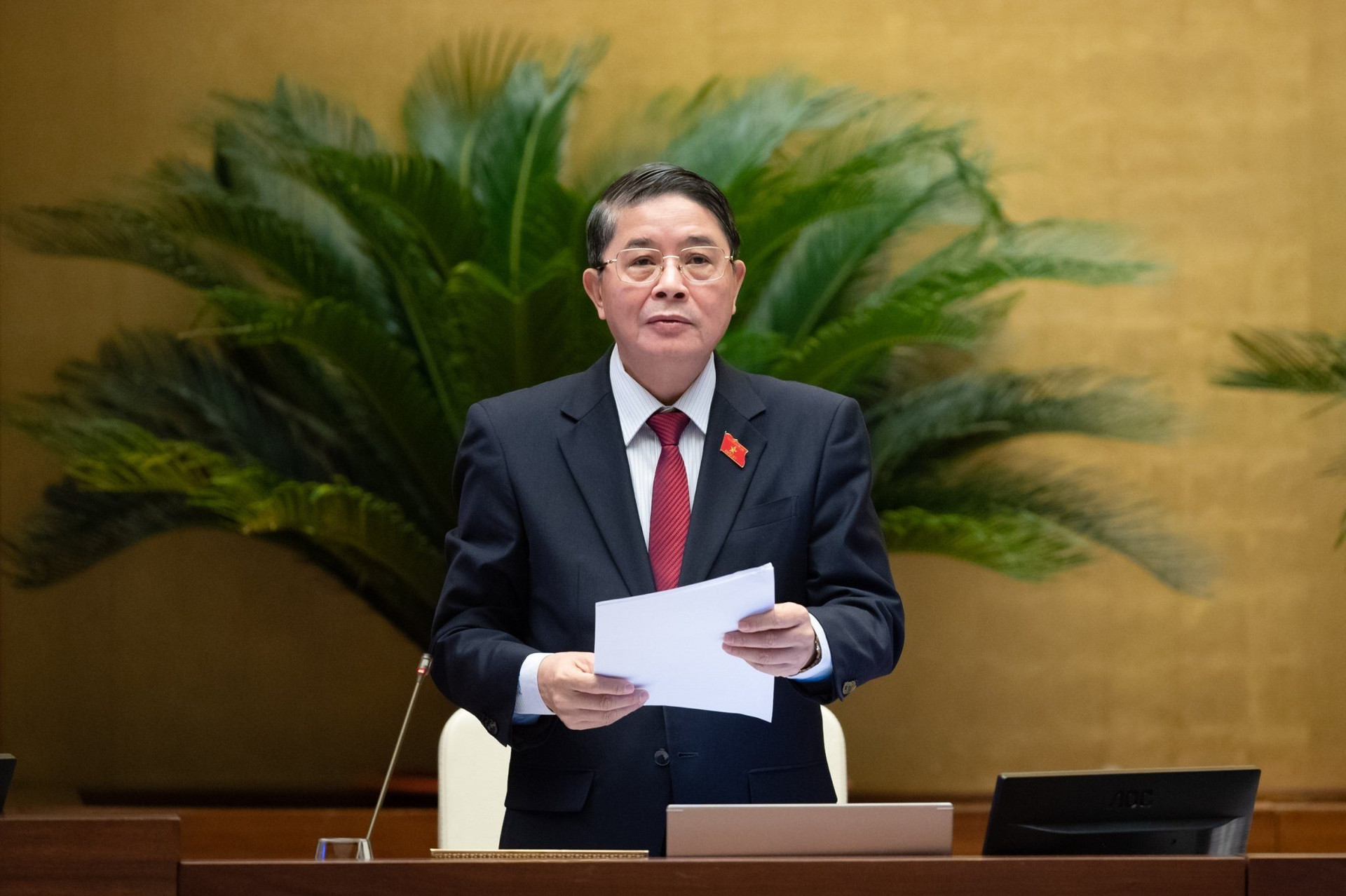
Through discussion, the National Assembly highly appreciated the responsible working spirit of the Vietnam Fatherland Front, the Government, the agency in charge of verification, the agency in charge of drafting and relevant agencies, the close direction of the National Assembly Chairman, the National Assembly Standing Committee in collecting public opinions and absorbing and revising the draft law.
The National Assembly acknowledges, commends and respectfully thanks all classes of people at home and abroad, experts and scientists who have paid attention to and responsibly invested time and effort to contribute many important opinions to the Land Law project; at the same time, it hopes that the people, experts and scientists will continue to contribute opinions to complete the law project to ensure the quality and feasibility of the law when it comes into effect.
The opinions expressed in the discussion session agreed with many contents that had been absorbed and revised; at the same time, many more dedicated and responsible opinions were also contributed to perfecting the draft law, such as: continuing to review and fully institutionalize the Party's viewpoints and policies on land management and use, especially the 8 key groups of issues set out in Resolution No. 18.
The Vice Chairman of the National Assembly said that the National Assembly Standing Committee will direct the drafting agency, the verification agency and relevant agencies to fully study, absorb, complete and submit to the National Assembly at the 6th Session, 15th tenure.
Source










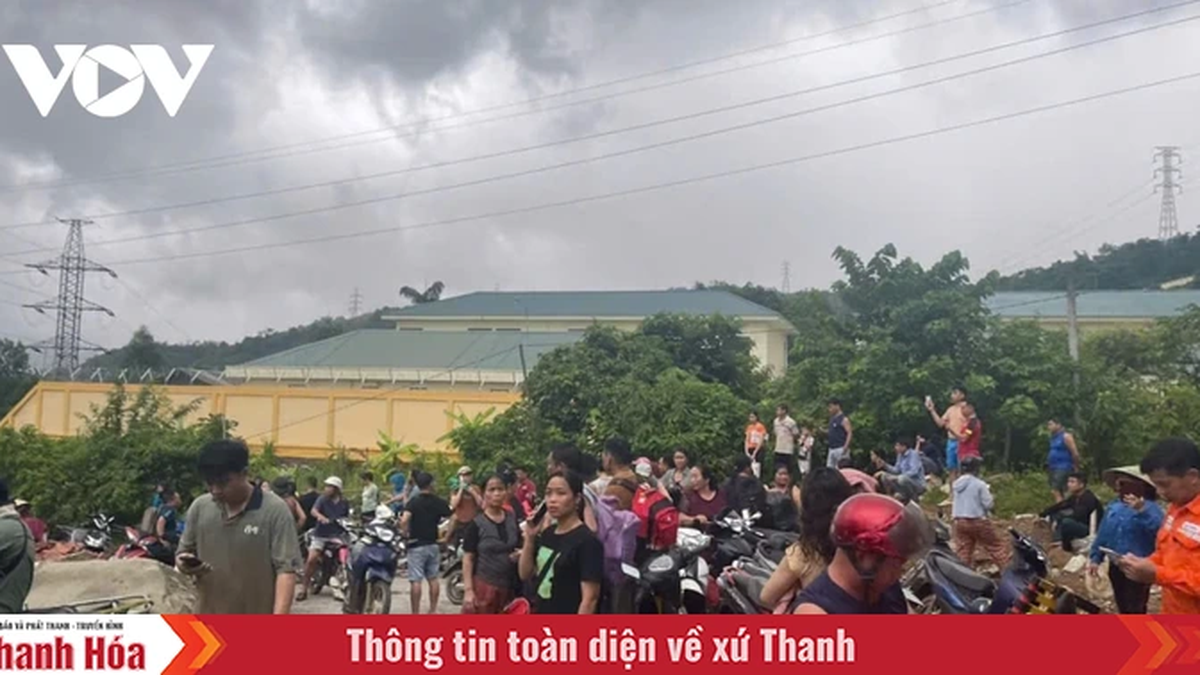
























































































Comment (0)